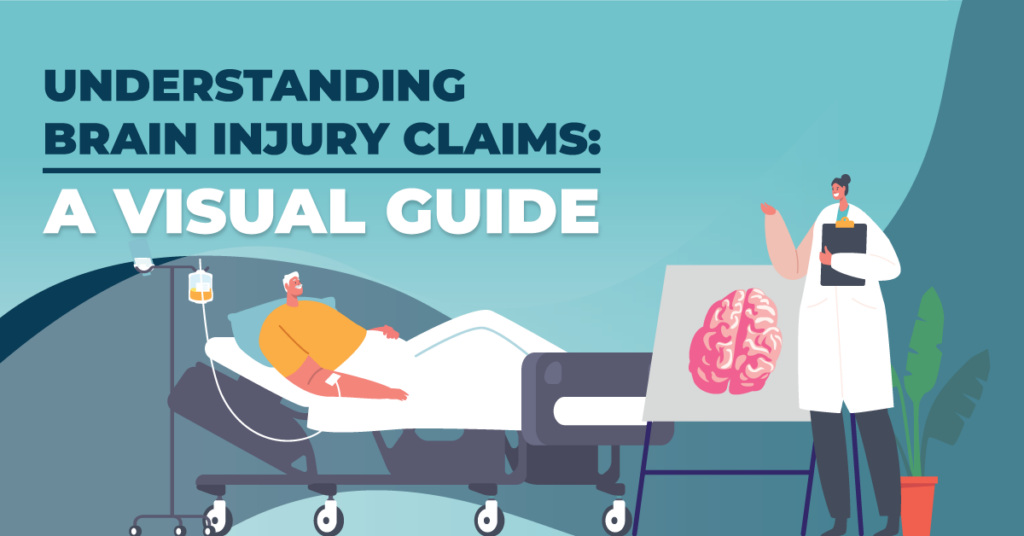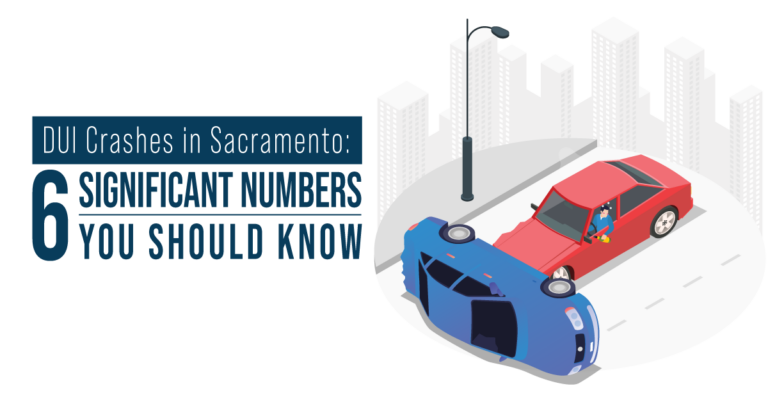
A brain injury claim is only one of the many personal injury claims being filed in the U.S. daily. According to California’s Department of Rehabilitation, about 1.7 million Americans sustain a traumatic brain injury each year.
Like other personal injury cases, a brain injury claim stems from an accident caused by other people’s negligence. Depending on the cause and severity of the impact, the injury can be mild or severe. The infographic below will delve into the nature of a brain injury claim and how the severity affects a personal injury case.

What is a Brain Injury Claim?
A brain injury claim results from trauma or a blow to the head due to an accident caused by someone else’s negligence. It is one of the more complex types of personal injury claims as it considers the potential life-long consequences of the injury. Here, the negligent party needs to compensate the victim for their initial and future injuries from the accident.
Categories of Brain Injury Claims
Brain injuries sustained from car accidents vary depending on their severity. In particular, a brain injury from a car accident may be traumatic, anoxic, or hypoxic. Understanding their differences can help you identify which type of brain injury claim to file.
1. Traumatic Brain Injury (TBI) Claim
TBI is a head injury resulting from sudden, strong, and forceful bumps to the head or skull. In this type of brain injury, the victim sustains a closed or open head wound or skull fracture due to a fall, car accident, blast, combat, or sports activity, piercing the brain tissues. The victim may also suffer a concussion, contusion, diffuse axonal injuries, or penetration injuries.
TBI is categorized into two: mild and moderate to severe. Mild TBI can heal over time but will still affect the brain temporarily, lasting for a few hours to days. For instance, the victim may experience a brief loss of consciousness, confusion, disorientation, nausea, headache, oversleeping or difficulty sleeping, sensory problems, memory problems, or mood swings.
Meanwhile, moderate to severe TBI has long-lasting effects and may even cause death. Its symptoms include significant loss of consciousness, progressive headaches, seizures, convulsions, dilation of pupils, draining clear fluid from the nose or ears, coordination loss, agitation, confusion, and slurred speech.
2. Anoxic Brain Injury Claim
A victim may file this personal injury claim if they have sustained an anoxic brain injury. This is an injury characterized by the brain’s inability to receive oxygen. Here, the brain is deprived of oxygen for up to four minutes, causing cell death and permanent brain damage if not treated immediately. It may even lead to death if not treated within four to six minutes after it was sustained.
Its common causes are strangulation from an assault, anaphylactic shock or severe allergic reaction, drug overdose, stroke, drowning, and a sudden and violent blow to the victim’s throat
An anoxic brain injury has three types—anemic anoxia, toxic anoxia, and anoxic anoxia. Anemic anoxia happens when the blood can’t carry enough oxygen to the brain because the blood doesn’t contain enough hemoglobin to transport blood to the body’s organs and tissues.
Toxic anoxia happens when chemicals or poisons are ingested, preventing the blood from effectively carrying oxygen to the brain. Lastly, anoxic anoxia is when there isn’t enough oxygen to breathe in, causing suffocation.
The victim may experience confusion, loss of consciousness, dizziness, nausea, behavior or sensation changes, or intense headaches. Other cognitive symptoms that may also result from this include depression or anxiety, difficulty doing previously non-challenging tasks, trouble with recognition, added fears or phobias, and memory problems.
3. Hypoxic Brain Injury Claim
A hypoxic brain injury is similar to an anoxic brain injury, except that the oxygen supply to the brain is limited rather than cut off. Here, the brain still receives oxygen, but the levels are dangerously low, causing a gradual impairment of brain cells or even cell death.
Hypoxic brain injury can result from many things. For example, a victim may have inhaled carbon monoxide during a fire. Someone at a high altitude of 8,000 feet can also suffer from this brain injury. Other common causes include choking, strangulation, anesthetic errors, extremely low blood pressure, and asthma attacks.
The signs and symptoms may depend on how severe the brain injury is. If it is a mild hypoxic injury, the victim may experience temporary memory loss, reduced body locomotion, or difficulty focusing or making sound decisions. Meanwhile, if it is a severe hypoxic brain injury, the victim may suffer seizures, coma, or even brain death.
Types of Damages in a Brain Injury Claim
Brain injuries from car accidents are considered severe as they can result in a degradation of the victim’s life quality or even loss of life. The injuries sustained by the victim, both physical and emotional, are looked into when calculating damages. Read on to learn the different damages and the injuries that fall under each type.
- General Damages
Categorized as non-economic, these damages cover the victim’s pain and suffering as a result of their injuries. This type entitles the victim to financial compensation for their mental and physical issues directly related to the accident. In particular, general damages cover the following:
- Mental anguish
- Mental health issues
- Loss of love, care, or companionship
- Reduced quality of life
- Disfigurement or physical impairment
- Current and future physical and emotional suffering
Since they involve intangible things, it can be difficult to calculate the equivalent monetary amount of these injuries. As such, experts are often asked to assess the injuries and estimate the monetary value. One factor they consider is the severity of the injury.
- Special Damages
While general damages concern non-economic injuries, special damages are all about the economic side of things. Typically, this covers the following:
- Medical bills incurred from the accident
- Lost earnings
- Property damage
- Loss of a rare or one-of-a-kind item
- Other out-of-pocket expenses
- Present and future expenses for maintenance or ongoing treatments
Unlike general damages, this type is easier to calculate since the victim can provide documents like receipts upon which the assessment will be based.
Compensation for Your Peace of Mind
Sustaining a car accident brain injury can be tough. Apart from the physical and emotional suffering that comes with it, the medical costs of the treatment are another aspect the victim must deal with.
Contact an attorney immediately if you’ve been hurt in an accident or sustained a brain injury. Working with a personal injury lawyer is vital to getting your compensation.
Before proceeding with your claim, you must first understand the nature of a brain injury case and the types of damages that can be awarded. This way, you can navigate the process with certainty and come up with a well-informed decision.If you’re looking for a personal injury lawyer in Orange County, reach out to us at RMD Law. We have a team of experienced lawyers ready for the tireless representation you deserve.
Contact us today for a free case evaluation!
- Bicycle Accidents in San Francisco: How Safe Are Cyclists? - July 10, 2023
- 6 Ways Posting on Social Media Can Hurt Your Personal Injury Claim - July 5, 2023
- DUI Crashes in Sacramento: 6 Significant Numbers You Should Know - July 3, 2023


